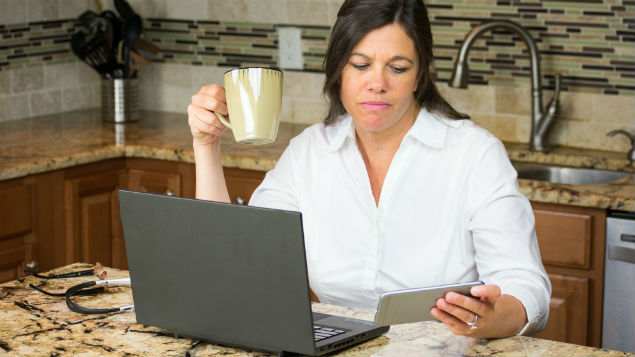The explosion of remote working during the UK’s first Covid-19 lockdown saw employees suffer from ‘Zoom fatigue’ and highlighted the need for longer periods spent away from work and digital communication devices. It has also seen workers’ routines being dictated by ‘what technology packages are available’, according to an expert.
As per new exploration by London South Bank University (LSBU) serious distant correspondences can hurt worker prosperity at work, whenever left unregulated.
The review took a gander at the degrees of energy consumption experienced by representatives participated in remote working and their expanded requirement for everyday recuperation time, considering different advanced media applications used to finish a scope of work assignments.
The main findings were:
- Remote working generally leads to increased tiredness or Zoom fatigue for employees and a greater need for longer recovery time compared with on-site office work
- Communication via video calls is more tiring to deal with than other forms of digital communication, such as emails, texts, or chats, as video calls require higher levels of self-control and regulation of emotion
- Daily fluctuations in different forms of remote communication between employees is detrimental to the overall well-being of the workforce.
In light of these discoveries the report’s creators said bosses should have been mindful of representatives’ requirement for adequate opportunity to recuperate from the requests of remote working. They should have been firm about staff not working past center hours and enjoying normal reprieves.
Representatives ought to be urged to close down advanced gadgets, for example, workstations and work telephones outside working hours to help individuals to accomplish a sound balance between serious and fun activities. The discoveries additionally underlined the requirement for businesses to help staff who as of now have additional requests on their time due to mindful and family obligations.
Karin Moser, teacher of authoritative way of behaving at LSBU’s Business School, who mutually completed the examination, said: “Though past exploration seeing remote working practices in the UK zeroed in on worker efficiency, this review is the first of its sort to show that these practices represent a danger to representative prosperity.
“The pandemic has tossed a large part of the labor force into one tremendous web-based explore, compelling most of representatives to abruptly telecommute. This has left staff with no past experience of remote working, with brief period to plan and change.
“The peril is that many work schedules are currently directed by what innovation bundles are accessible, giving the client brief period for reflection on whether what’s been given is sufficient. In the mean time representatives are additionally inadequate with regards to the vital abilities preparing to help them work together and lead basically. This business practice isn’t maintainable, and in the long haul, will unfavorably affect representative wellbeing and efficiency.”
The scientists directed an everyday journal concentrate on studying an associate of 102 UK representatives working from a distance across a 10-day time frame during full public lockdown.
Levels of openness to far off correspondence were surveyed by asking members how long they had gone through every day utilizing: message based media (messaging, messages), video gatherings (Slack, Skype, Zoom, MSTeams), voice-based media (calls), virtual entertainment (Twitter, Facebook, Snapchat), cooperative stages (Slack, Workzone, Blackboard, Glip).
The complete name of the review is An Investigation of Self-Control and Self-Regulation as Mechanisms Linking Remote Communication to Employee Well-Being during the Covid-19 Pandemic.




